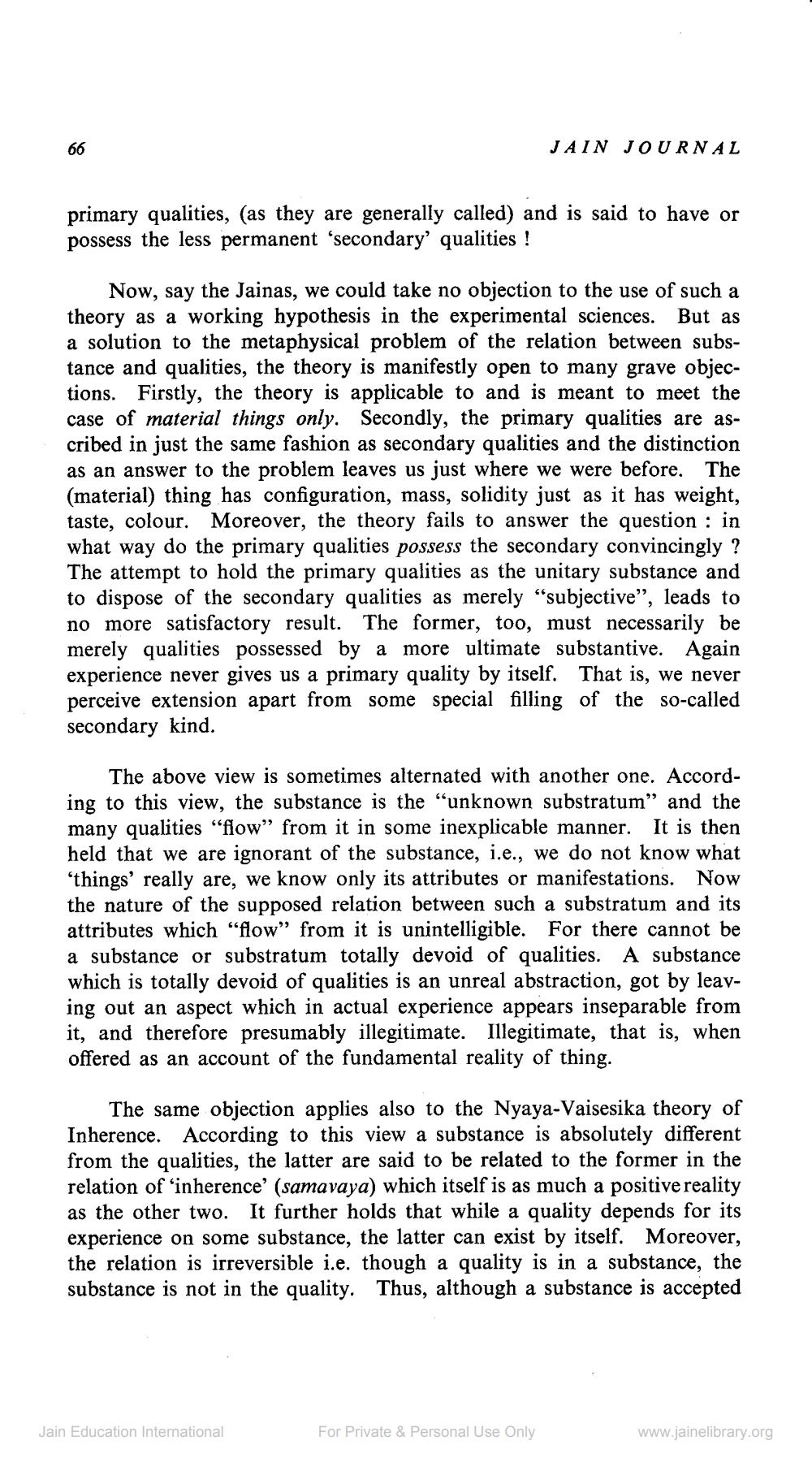________________
66
primary qualities, (as they are generally called) and is said to have or possess the less permanent 'secondary' qualities !
JAIN JOURNAL
Now, say the Jainas, we could take no objection to the use of such a theory as a working hypothesis in the experimental sciences. But as a solution to the metaphysical problem of the relation between substance and qualities, the theory is manifestly open to many grave objections. Firstly, the theory is applicable to and is meant to meet the case of material things only. Secondly, the primary qualities are ascribed in just the same fashion as secondary qualities and the distinction as an answer to the problem leaves us just where we were before. The (material) thing has configuration, mass, solidity just as it has weight, taste, colour. Moreover, the theory fails to answer the question: in what way do the primary qualities possess the secondary convincingly ? The attempt to hold the primary qualities as the unitary substance and to dispose of the secondary qualities as merely "subjective", leads to no more satisfactory result. The former, too, must necessarily be merely qualities possessed by a more ultimate substantive. Again experience never gives us a primary quality by itself. That is, we never perceive extension apart from some special filling of the so-called secondary kind.
The above view is sometimes alternated with another one. According to this view, the substance is the "unknown substratum" and the many qualities "flow" from it in some inexplicable manner. It is then held that we are ignorant of the substance, i.e., we do not know what 'things' really are, we know only its attributes or manifestations. Now the nature of the supposed relation between such a substratum and its attributes which "flow" from it is unintelligible. For there cannot be a substance or substratum totally devoid of qualities. A substance which is totally devoid of qualities is an unreal abstraction, got by leaving out an aspect which in actual experience appears inseparable from it, and therefore presumably illegitimate. Illegitimate, that is, when offered as an account of the fundamental reality of thing.
The same objection applies also to the Nyaya-Vaisesika theory of Inherence. According to this view a substance is absolutely different from the qualities, the latter are said to be related to the former in the relation of 'inherence' (samavaya) which itself is as much a positive reality as the other two. It further holds that while a quality depends for its experience on some substance, the latter can exist by itself. Moreover, the relation is irreversible i.e. though a quality is in a substance, the substance is not in the quality. Thus, although a substance is accepted
Jain Education International
For Private & Personal Use Only
www.jainelibrary.org




